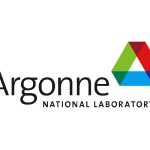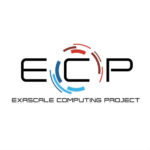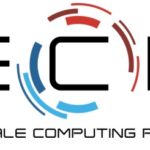Lawrence Livermore National Laboratory’s Lori Diachin will take over as director of the Department of Energy’s Exascale Computing Project on June 1, “guiding the successful, multi-institutional high-performance computing effort through its final stages,” ECP said in its announcement. Diachin, who is currently the principal deputy associate director for LLNL’s Computing Directorate, has served as ECP’s […]
Let’s Talk Exascale: ALCF’s Katherine Riley Talks Aurora Deployment, Impactful Science and Partnering with ECP
In this episode of the “Let’s Talk Exascale” podcast, the Exascale Computing Project’s (ECP) Scott Gibson talks with Katherine Riley, director of science at the Argonne Leadership Computing Facility. Her mission is to lead a team of ALCF computational science experts who work with facility users to maximize their use of the facility’s computing resources. […]
Argonne: ATPESC 2023 Applications Due March 1
Jan. 4, 2023 — Applications are due Wednesday, March 1 for the annual Argonne Training Program on Extreme-Scale Computing (ATPESC), which will take place July 30-August 11, 2023 in the Chicago area. Apply here. There are no fees to participate in ATPESC. Domestic airfare, meals and lodging are also provided. The program offers the opportunity […]
Let’s Talk Exascale: The Why Behind HPC-class Scientific Simulations
This episode of the Let’s Talk Exascale podcast, produced by the U.S. Department of Energy’s Exascale Computing Project, features a discussion between ECP host Scott Gibson and Bronson Messer, who offers insights on computer modeling and simulation for advancing science. Messer is a distinguished scientist and director of science at the Oak Ridge Leadership Computing […]
OLCF’s Doug Kothe on Pushing Frontier Across the Exascale Line and the Future of Leadership Supercomputers
Everyone involved in the Frontier supercomputer project got a taste of what a moonshot is like. Granted, lives were not on the line with Frontier as they were when Armstrong and Aldrin went to the moon in 1969. But in other ways there are parallels between the space mission and standing up Frontier, the world’s […]
Exascale: ECP’s QMCPACK Project for Predicting and Controlling Materials
In this episode of the Let’s Talk Exascale podcast, produced by DOE’s Exascale Computing Project, the topic is an ECP subproject called QMCPACK, which aims to find, predict, and control materials from first principles with predictive accuracy. This episode offers a conversation with QMCPACK’s principle investigator, Paul Kent, a distinguished R&D staff member at Oak Ridge National Laboratory. The discussion
Exascale Computing Project Supports Atmospheric Convection Modeling
July 5, 2022 – Researchers supported by the US Department of Energy’s (DOE’s) Exascale Computing Project (ECP) have integrated the super-parameterization technique for modeling moist convection into the Energy Exascale Earth System Model (E3SM), which is a global climate modeling, simulation, and prediction project being developed by DOE. This method is designed to enable E3SM to improve […]
Exascale Computing Project’s Doug Kothe to Be Named Oak Ridge Associate Lab Director
Last month, we reported on management changes at Oak Ridge National Laboratory and the Department of Energy’s Exascale Computing Project (ECP), including the upcoming retirement of Jeff Nichols, associate director of the lab with oversight over the National Center for Computational Sciences, the site of the Oak Ridge Leadership Computing Facility (OLCF). Now we’ve learned […]
Exascale Computing Project BoF Days May 10-12
May 9, 2022 — The Exascale Computing Project (ECP) 2022 Community Birds-of-a-Feather (BOF) Days will take place Tuesday, May 10–Thursday, May 12, with six to eight sessions per day conducted via Zoom. Registration and the agenda can be found here. The 2022 Community BOF Days is designed to provide an opportunity for the high-performance computing […]










